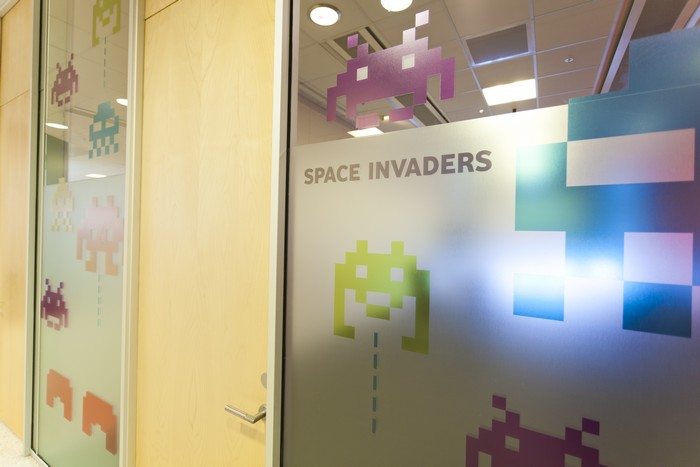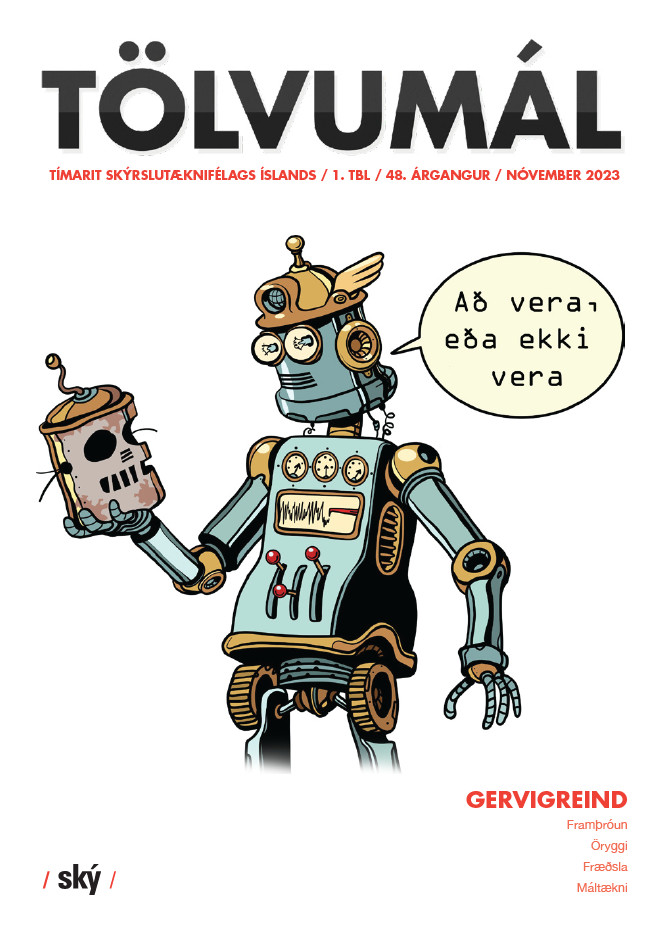

Jakob Sigurðsson
Hinn 9. júní 2012 lést í Reykjavík Jakob Jóhannes Sigurðsson fyrrum forstöðumaður tölvudeilda Flugleiða og Sláturfélags Suðurlands á 86 aldursári.
Jakob Sigurðsson var meðal frumkvöðla í hagnýtingu tölvutækninnar á Íslandi. Hann fæddist á Skaganum 18. júlí 1926, knattspyrnuáhugamaður alla tíð, þátttakandi í þeirri ágætu íþróttagrein á yngri árum en varð fyrir því óláni að fótbrotna á æfingu með þeim afleiðingum að síðar þurfti af taka af honum annan fótinn eftir að ítrekaðar tilraunir til lækninga hér og erlendis höfðu ekki borið árangur.
Jakob hlaut almenna menntun meðal annars í Flensborgarskóla í Hafnarfirði. Hann stundaði síðan verslunarstörf m.a. hjá HB á Akranesi og skipasmíðastöð Þorgeirs og Ellerts. Á stríðsárunum vann hann mikið í herstöðinni í Hvalfirði og fékk þar ágæta skólun í enskri tungu, sem nýttist vel síðar á lífsleiðinni. Eftir að skýrsluvinnsluvélar komu til sögunnar hér á landi á 6. áratugnum fékk hann fljótt áhuga á þessari nýju tækni og í framhaldinu réðist hann til Sláturfélags Suðurlands á árinu 1964, er ákveðið var að nútímavæða skrifstofuhald félagsins. Var honum falið að sjá um það verkefni.
Á þeim tíma hafði verið tekinn í notkun vélbúnaður af gerðinni Unit record. Þessi vélbúnaður samanstóð af nokkrum vélum sem hver um sig hafði ákveðið hlutverk. Ein vélin gat margfaldað og reiknað t.d. söluskatt og skráð niðurstöðuna í 80 stafa gataspjald, önnur gat samraðað spjöldum og sú þriðja raðað spjöldum í ákveðna röð, en sú stærsta skrifaði á pappír. Forritin voru járnrammar með götum sem vírar voru tengdir í og var þetta var forritið sem vélin vann eftir. Þessar vélar voru teknar í notkun 1964 og gerbreyttu vinnslu á sölureikningum og bókhaldi félagsins. Það var mjög áhugavert fyrir unga menn að koma inn í þennan nýja heim og fá tækifæri að nema af Jakobi allt sem hann kunni enda var hann framúrskarandi góður kennari.
Það var svo um haustið 1967 að fyrsta tölvan kom til Sláturfélagsins. Hún var af gerðinni IBM System 360 með 256 kb í minni. Hér var komin vél sem var notuð fram að því að deildin var sameinuð tölvudeild Loftleiða síðar Flugleiða á seinni stigum. En áður en það varð þá var minni stækkað í 512 kb. ásamt 5,4 MB diskum. Þetta breytti miklu því nú var hægt að geyma upplýsingar á þessum diskum í stað spjalda. Tveir diskar gátu verið í notkun samtímis. Til að geta notað þessa vél urðu menn að læra RPG forritunarmálið undir handleiðslu Jakobs, sem að dómi starfsmanna var afar fljótur að læra sjálfur sem og að tileinka sér hlutina.
Á þessum árum var allur vélbúnaður leigður af IBM og var það nokkuð kostnaðarsamt. Að undirlagi hins ráðdeildarsama Jakobs var farið að taka að sér tölvuvinnslu fyrir önnur fyrirtækii til að hafa tekjur á móti auknum kostnaði. Dæmi um fyrirtæki, sem byrjuðu sína tölvuvinnslu hjá Sláturfélaginu eru Mjólkursamsalan, Eimskip, Verslunarbanki Íslands, Flugfélag Íslands, Hekla, Nói Siríus, G. Ólafsson, SPRON, Erfðafræðistofnun og Búreiknistofa landbúnaðarins.
Jakob var mjög duglegur að fá önnur fyrirtæki í viðskipti og þurfti því að fjölga starfsmönnum og stækka húsnæði. Þegar ákveðið var að sameina tölvudeild Sláturfélagsins tölvudeild Loftleiða þá voru 10 starfsmenn að störfum og 8 af þeim unnu vaktavinnu. Á þeim tíma var unnin umfangsmikil tölvuvinna hjá Sláturfélaginu undir styrkri stjórn Jakobs. Á þessu má sjá að Jakob var mikill brautryðjandi í tölvuvinnslu á Íslandi og er vert að nafni hans sé haldið á lofti fyrir þær sakir.
Haustið 1973 voru tölvudeildir Loftleiða og Sláturfélags Suðurlands endanlega sameinaðar og var þar lagður grunnurinn að tölvudeild Flugleiða, sameinuðu félagi Loftleiða og Flugfélags Íslands, sem tók til starfa snemma árs 1974. Maðurinn á bak við þessar sameiningar var Jakob . Hann sá því snemma fyrir þá þróun í tölvuheiminum, sem síðar varð, að ekki þarf vélbúnaðurinn að vera staðsettur innan veggja hvers fyrirtækis til að góðum árangri verði náð.
Hinn sjálfmenntaði Jakob Sigurðsson fylgdist vel með þróun tölvumála í heiminum. Þekkingu sína notaði hann í starfi sínu ekki síst hjá Flugleiðum. Hann hafði góðan skilning á, að öflugur vélbúnaður var forsenda góðs árangurs. Hins vegar taldi hann að sígandi lukka væri best og varð því þróun í tölvubúnaði félagsins farsæl og án stökkbreytinga. Hann lagði jafnan áherslu á, að ákvarðanir væru kostnaðarlega réttlætanlegar og skiluðu fjárhagslegum árangri.
Eitt af því sem Jakob beitti sér fyrir hjá Flugleiðum var miðlæg skráning upplýsinga. Á þeim tíma var skráning gagna yfir í véllesanlegt form lykilatriði í nær öllum rekstri. Hjá Flugleiðum sáu tugir götunarstúlkna um þennan þátt og skiluðu góðu starfi. En Jakob sá fyrir sér nýjar leiðir, sem voru meir í takt við nútímann, að skráning gagnanna verði til við stofnun þeirra. Þess vegna beitti hann sér fyrir þeirri nýjung að keypt var svonefnt Key to Disk skráningarkerfi af gerðinni CMC 5 frá Englandi. Þetta var í fyrsta skipti sem íslenskt fyrirtæki keypti tölvubúnað frá öðrum en þeim, sem höfðu söluumboð hér á landi. Reyndist þessi ákvörðun farsæl, í takt við nýja tíma og nýttist lengi. Er þetta dæmi um hvernig Jakob fór ótroðnar slóðir í starfi sínu, sem reyndust farsælar.
Jakobi var snemma ljóst, að til þess að eðlileg þróun gæti orðið í tölvuvæðingu verkefna Flugleiða væri nauðsynlegt að koma þar upp gagnagrunnskerfi. Aðeins væri spurning um hvaða kerfi yrði valið. Öllum var ljóst og ekki síst honum, að vanda yrði til þeirrar ákvörðunar, þar sem vinnsla margra komandi ára kæmi til með að byggja á henni. Niðurstaða varð sú að ADABAS gagnagrunnskerfið ásamt forritunarmálinu NATURAL frá Software AG í Þýskalandi varð fyrir valinu. Var leitað eftir samvinnu allra þeirra stofnana og fyrirtækja, sem höfðu viðeigandi vélbúnað að fá þessi hugbúnaðarkerfi til landsins. Ekki var einhugur um þetta ráðslag á sínum tíma. Fór svo að þróun ADABAS staðnaði. Er Jakob varð þess áskynja og endurbætt DB2 gagnagrunnskerfi frá keppinautnum IBM kom á markað beitti Jakob sér fyrir því sem fyrirtækinu var hagkvæmast. Í framhaldinu leysti DB2 ADABAS af hólmi.
Jakob var þannig alltaf maður raunveruleikans og víðsýninnar. Hann var sveigjanlegur en jafnframt staðfastur og trúr sinni sannfæringu. Hann var gagnrýninn en tók jafnan rökum. Hann horfði til framtíðar og sat aldrei fastur í farinu. Þeim hjá IBM þótti hann stundum erfiður en hann var alltaf til í að hlusta. Hann lét aldrei hlut sinn nema góð rök væru fyrir hendi. Hann hugsaði jafnan um kostnað og hagkvæmni og gerði sér grein fyrir því að dýrt gat verið að reisa sér hurðarás um öxl og byggja skýjaborgir. Hagur vinnuveitenda hans var honum ofarlega í huga. Hann var í miklu áliti meðal samstarfsmanna og almennt í tölvutæknigreininni og oft leitað í hús til hans til ráða.
Kannski rís starfsferill Jakobs hæst með þróun og rekstri eigin bókunarkerfis Flugleiða á áttunda áratugnum. Ásamt fáum góðum samstarfsmönnum tókst að koma upp bókunarkerfi á litlum og tiltölulega ódýrum móðurtölvubúnaði. Var talið ótrúlegt að þetta skyldi takast með jafn litlum tilkostnaði, sem var brot af því, sem annars staðar þekktist við hliðstæðar lausnir Byggðist þessi árangur á yfirburðaþekkingu á tölvu- og fjarskiptatækni, sem samhentur hópur starfamanna bjó yfir. Var þetta kerfi án efa langstærsta sívinnslukerfið hérlendis á þessum tíma, þar sem þúsundir skjáa og vinnustöðva um allan heim gátu haft sambandi við bókunarkerfi félasins um hið háþróaða fjarskiptaneti SITA en Flugleiðir voru með leigulínu til aðalstöðva SITA í London, fyrst íslenzkra fyrirtækja, sem voru með slíka leigulínu til útlanda fyrir tölvugögn.
Spor frumkvöðlanna verða seint fullmetin af verðleikum. Ástæða er til að halda á lofti þeim sporum, sem Jakob Sigurðsson hefur markað. „Þekking er forsenda framfara“ eru orð sem höfð voru eftir þessum sjálfmenntaða frumkvöðli í einhverju spjalli eftir að starfsferlinum lauk. Megi minning hans lengi lifa.
Sverrir Ólafsson
Sigurjón Stefánsson

 Tölvuleikjaiðnaðurinn á Íslandi hefur tekið stakkaskiptum á allra síðustu árum. Það er í raun ekki ýkja langt síðan að aðeins var hægt að telja til eitt, eða mögulega tvö, fyrirtæki sem komu að framleiðslu leikja og höfðu náð einhverjum árangri á því sviði. Það mátti að vísu finna Íslendinga sem störfuðu hjá erlendum tölvuleikjaframleiðendum og að sama skapi var hægt að benda á nokkur félög sem höfðu gert tilraunir á sviði leikjaþróunar. Hins vegar var erfitt að færa rök fyrir því að hér væri hægt að tala um iðnað.
Tölvuleikjaiðnaðurinn á Íslandi hefur tekið stakkaskiptum á allra síðustu árum. Það er í raun ekki ýkja langt síðan að aðeins var hægt að telja til eitt, eða mögulega tvö, fyrirtæki sem komu að framleiðslu leikja og höfðu náð einhverjum árangri á því sviði. Það mátti að vísu finna Íslendinga sem störfuðu hjá erlendum tölvuleikjaframleiðendum og að sama skapi var hægt að benda á nokkur félög sem höfðu gert tilraunir á sviði leikjaþróunar. Hins vegar var erfitt að færa rök fyrir því að hér væri hægt að tala um iðnað.
 Tölvuleikir eru af ýmsum gerðum og stærðum og geta haft margvísleg áhrif á þann sem spilar, bæði góð og ekki svo góð. Tölvuleikir eru ekki í eðli sínu góðir eða slæmir, en það fer eftir spilaranum og áhrifunum á hann hvernig þeir eru flokkaðir. Margir leikir eru erfiðir og reyna á spilarann, hann/hún vill ná lengra og fá fleiri stig, gera betur en síðast eða betur en einhver annar. Þeir innihalda margt sem reynir á hugann, reynir á rökhugsun og lausnaleit fyrir utan að þjálfa samhæfingu hugar og handa. Hér ætla ég að beina sjónum í að því hvernig þeir geta auðgað bæði líf okkar og umhverfi.
Tölvuleikir eru af ýmsum gerðum og stærðum og geta haft margvísleg áhrif á þann sem spilar, bæði góð og ekki svo góð. Tölvuleikir eru ekki í eðli sínu góðir eða slæmir, en það fer eftir spilaranum og áhrifunum á hann hvernig þeir eru flokkaðir. Margir leikir eru erfiðir og reyna á spilarann, hann/hún vill ná lengra og fá fleiri stig, gera betur en síðast eða betur en einhver annar. Þeir innihalda margt sem reynir á hugann, reynir á rökhugsun og lausnaleit fyrir utan að þjálfa samhæfingu hugar og handa. Hér ætla ég að beina sjónum í að því hvernig þeir geta auðgað bæði líf okkar og umhverfi. Í annað sinn er runnin upp Hamfaravika í HR þar sem nemendur á fyrsta ári í tæknifræði og verkfræði vinna í 6-8 manna hópum að ákveðnu verkefni undir leiðsögn kennara. Mikil leynd hvílir yfir verkefninu og vita hvorki nemendur né kennarar hvert það er fyrr en á mánudagsmorgni. Síðan er unnið af ákefð í verkefninu fram á miðvikudag þegar kynningar fara fram á lausnum nemendahópa og lokahátíð er haldin. Áhersla er á að leggja verkefnið þannig upp að það sé unnið í rauntíma – enda hamfarir.
Í annað sinn er runnin upp Hamfaravika í HR þar sem nemendur á fyrsta ári í tæknifræði og verkfræði vinna í 6-8 manna hópum að ákveðnu verkefni undir leiðsögn kennara. Mikil leynd hvílir yfir verkefninu og vita hvorki nemendur né kennarar hvert það er fyrr en á mánudagsmorgni. Síðan er unnið af ákefð í verkefninu fram á miðvikudag þegar kynningar fara fram á lausnum nemendahópa og lokahátíð er haldin. Áhersla er á að leggja verkefnið þannig upp að það sé unnið í rauntíma – enda hamfarir. Símtækjasala undanfarinna ára endurspeglar þá miklu baráttu sem nú stendur yfir milli ólíkra stýrikerfa fyrir farsíma. Baráttan ógnar tilvist gamalgróinna framleiðenda, sem lengi vel gátu stuðst eingöngu við eigin stýrikerfi í sinni framleiðslu. Símtækjaframleiðendurnir hafa nálgast nýjan veruleika með ólíkum hætti og æði misjöfnum árangri.
Símtækjasala undanfarinna ára endurspeglar þá miklu baráttu sem nú stendur yfir milli ólíkra stýrikerfa fyrir farsíma. Baráttan ógnar tilvist gamalgróinna framleiðenda, sem lengi vel gátu stuðst eingöngu við eigin stýrikerfi í sinni framleiðslu. Símtækjaframleiðendurnir hafa nálgast nýjan veruleika með ólíkum hætti og æði misjöfnum árangri. Fjölmörg fyrirtæki hafa á undanförnum árum leitað leiða til að ná betri yfirsýn yfir viðskiptamannagrunn sinn með það að markmiði að efla stjórnun viðskiptatengsla. Fjölmargar lausnir hafa verið hannaðar, kerfi innleidd og sniðin að þörfum fyrirtækja en tvennum sögum fer af árangri þeirra innleiðinga.
Fjölmörg fyrirtæki hafa á undanförnum árum leitað leiða til að ná betri yfirsýn yfir viðskiptamannagrunn sinn með það að markmiði að efla stjórnun viðskiptatengsla. Fjölmargar lausnir hafa verið hannaðar, kerfi innleidd og sniðin að þörfum fyrirtækja en tvennum sögum fer af árangri þeirra innleiðinga.



